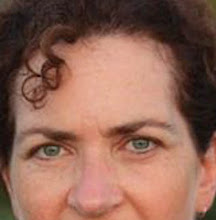As, all around,
they build and brood,
she watches,
waiting.
they build and brood,
she watches,
waiting.
Brown-headed Cowbirds are brood parasites, meaning they lay their eggs in other birds' nests and leave their young to be raised, sometimes displacing the young birds of other species. Cowbird eggs have been discovered in the nests of 220 species, including everything from songbirds, to small ducks and woodpeckers.
More about Brown-headed Cowbirds may be found through this Audubon site.




































































9 comments:
For me this is one of Nature's biggest mysteries. Imagine leaving your young to be raised elsewhere, and having this repeated by them, generation after generation.
That is weird that these birds nest like that when other birds are so family oriented. I feel sorry for the other birds. Great post as usual Nina!!
Just goes to show, if there's a niche, some species or other will exploit it.
I expected a big ole steer staring me in the face when I read that title of your post. Ha.. Jokes on me. The cowbirds are certainly watching and plotting in our garden now.
Nina you are a fountain of information and I am so glad as you are teaching me through your blogs, now if I could only retain all of it. Have a wonderful day.....:-) Bernie
somebody should report these birds for neglect - how dare they abandon their babies! i have never heard of this...thanks for the education today.
It's so hard to find any good.
Good post - I love the photo
Brown-headed Cowbirds have arrived here - Last year a pair of Rose-breasted Grosbeaks raised one of the cowbird ofspring.
The cowbirds followed the buffalo who were constantly on the move. Hence they couldn't raise a family so laid their eggs in other birds nests.
Now we have allowed forest nesting birds to be predated by them because of forest fragmentation. Here in the Texas Hill Country, we trap the cowbirds on public lands and lands managed for the golden-checked warbler and black-capped vireo and keep them all spring so they can't lay eggs.
Post a Comment